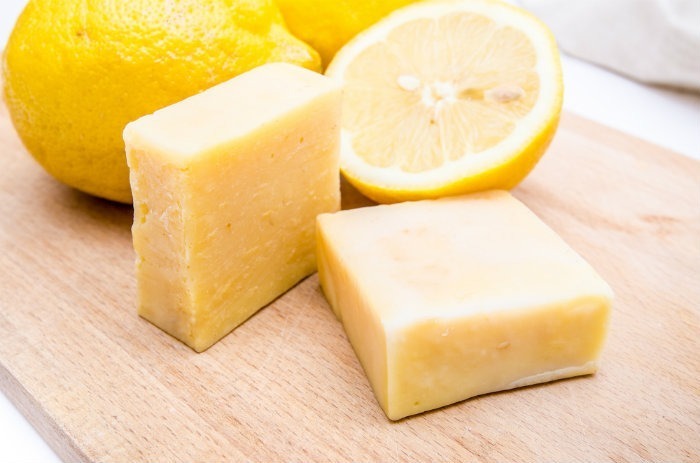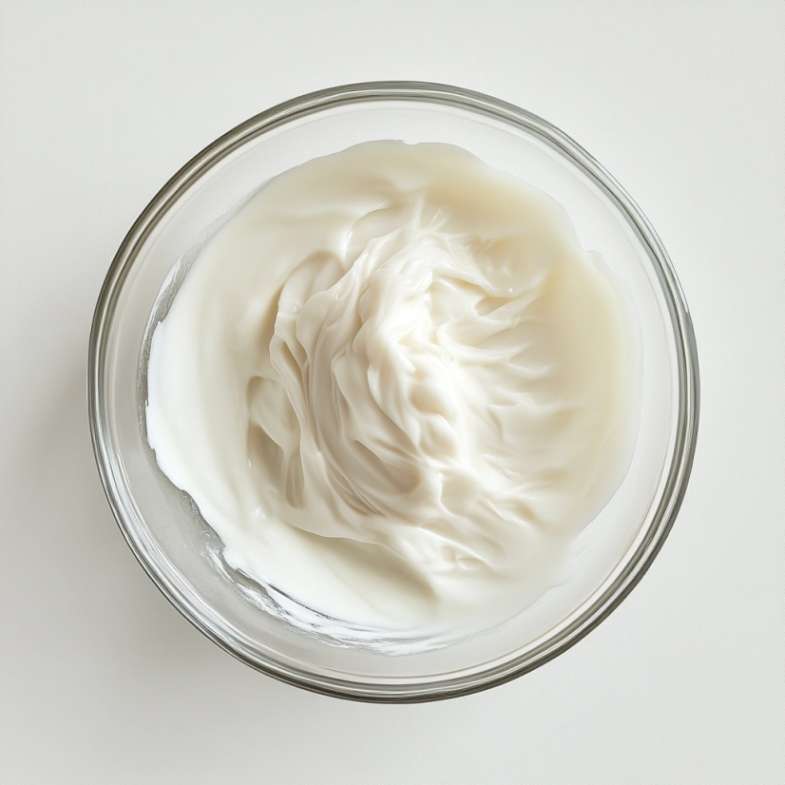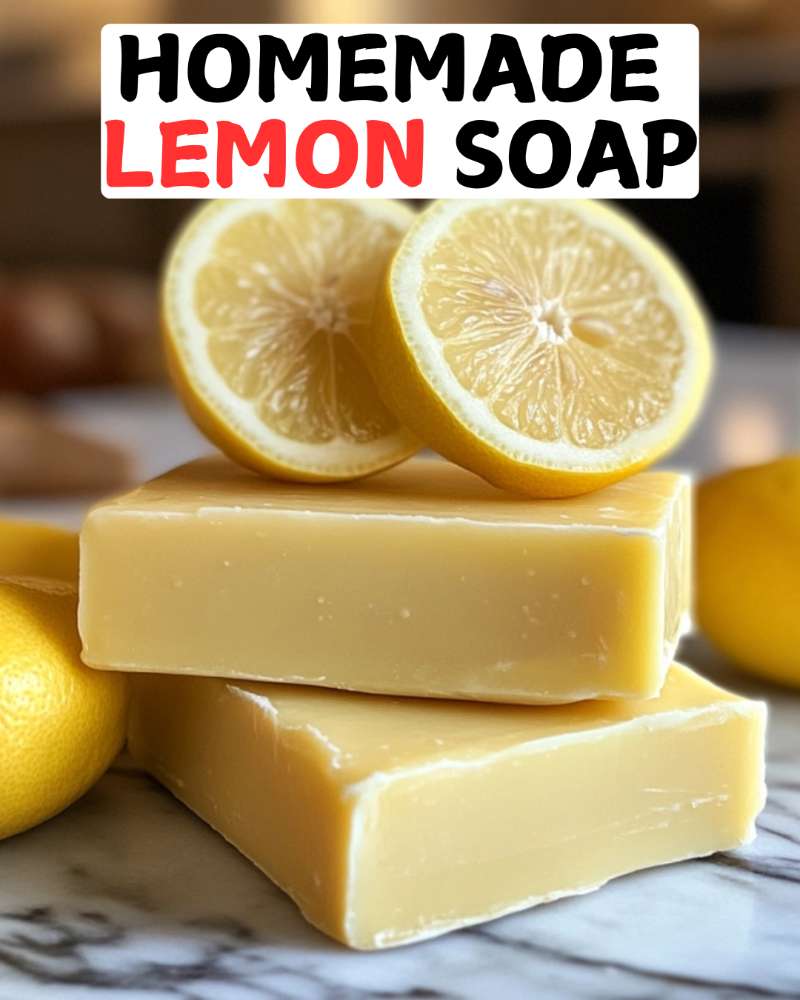How To Make Homemade Lemon Soap

Make sure to like Living Green and Frugally on Facebook, Shop at Amazon to help support my site and explore our PINTEREST BOARDS for innovative ways you can become self-sufficient.
If you’ve ever considered making your own soap at home, homemade lemon soap is a fantastic place to start. Not only is it packed with the refreshing and uplifting scent of citrus, but it’s also made from natural ingredients that are gentle on the skin. This DIY project is perfect for those who want to steer clear of harsh chemicals often found in store-bought soaps. Plus, it adds a fresh, zesty touch to your bathroom or makes for a thoughtful handmade gift.
Why Lemon Soap?
Lemon essential oil is renowned for its purifying, antibacterial, and mood-lifting properties. It helps cleanse the skin while offering a boost of Vitamin C, known for brightening and evening out your complexion. Paired with natural oils like olive or coconut oil, homemade lemon soap leaves your skin moisturized and smelling delightful.
Tips for Making Lemon Soap
Before diving into the recipe, here are a few tips to help you get the best results when making your lemon soap at home:
- Use high-quality essential oils: Lemon essential oil is the star of this soap, so make sure to use a high-quality, 100% pure essential oil. This ensures you get all the benefits of lemon’s natural properties.
- Choose a gentle base: Opt for skin-loving oils like olive oil, coconut oil, or shea butter. These oils provide the moisturizing benefits that balance the drying properties of lemon, which can be a bit astringent.
- Handle lye carefully: If you’re using the cold-process method, be cautious when working with lye. Wear gloves and work in a well-ventilated area. If you’re new to soap making, the melt-and-pour method can be a great beginner-friendly alternative.
- Add natural colorants: For an extra visual appeal, you can incorporate natural yellow colorants like turmeric or lemon zest into your soap. They give the soap a vibrant, sunny hue without the need for artificial dyes.
- Customize with exfoliants: To make the soap a gentle exfoliator, consider adding poppy seeds or finely ground oatmeal. These add texture and help slough away dead skin cells while you wash.

Homemade Lemon Soap Recipe
Ingredients:
- 1 lb of melt-and-pour soap base (goat’s milk, shea butter, or glycerin)
- 2 tbsp coconut oil (optional for added moisture)
- 15-20 drops of lemon essential oil
- 1 tbsp lemon zest (optional for exfoliation and a natural scent boost)
- Soap molds
- A few drops of yellow natural coloring (optional)
Instructions:
- Melt the soap base: Cut your soap base into cubes and place it in a heatproof container. Melt it slowly using a double boiler or in the microwave at 30-second intervals. Stir between each interval to ensure it melts evenly.
- Add coconut oil: Once melted, stir in the coconut oil. This step is optional, but it gives your soap extra moisturizing properties.
- Incorporate lemon zest and essential oil: Add the lemon zest and essential oil to the melted base, stirring well to combine. You can also add a few drops of natural yellow coloring if you want a more vibrant soap.
- Pour into molds: Carefully pour the mixture into your soap molds. Tap the molds gently on the counter to remove any air bubbles.
- Let it set: Allow the soap to harden for at least 3-4 hours or overnight at room temperature.
- Remove and enjoy: Once fully hardened, pop the soap out of the molds and your homemade lemon soap is ready to use!

Common Questions About Homemade Lemon Soap
Q: Can I use fresh lemon juice instead of essential oil?
A: While fresh lemon juice may seem like a natural choice, it’s not ideal for soap making. The acidity of lemon juice can interfere with the soap’s pH balance and shelf life. Lemon essential oil, on the other hand, is concentrated and provides the cleansing and aromatic benefits without affecting the soap’s integrity.
Q: How long will my homemade lemon soap last?
A: Properly stored homemade soap can last for 6 months to a year. Keep it in a cool, dry place to prevent it from getting mushy. If you used zest, the soap may develop a slightly shorter shelf life due to the natural oils from the peel.
Q: Can I use lemon soap on my face?
A: Lemon soap is great for cleansing oily or acne-prone skin thanks to lemon’s antibacterial properties. However, if you have sensitive or dry skin, test the soap on a small patch first as lemon can be a bit drying. You can also reduce the amount of essential oil for a gentler formula.
Q: What if I don’t have soap molds?
A: No worries! You can use silicone molds, muffin trays, or even an empty milk carton that has been cut open. Get creative with shapes and sizes!
Q: Can I add other essential oils?
A: Absolutely! Lavender, eucalyptus, or tea tree essential oils pair wonderfully with lemon and can enhance the soap’s scent and benefits. Just make sure the total amount of essential oil doesn’t exceed 25-30 drops.
Conclusion
Making homemade lemon soap is a rewarding, creative process that results in a luxurious product free from harsh chemicals. Whether you’re making it for personal use or gifting to friends, this natural, citrus-infused soap brings a bit of sunshine into everyday routines. Give this recipe a try and customize it to suit your preferences—your skin will thank you for it!
Pin for Later
